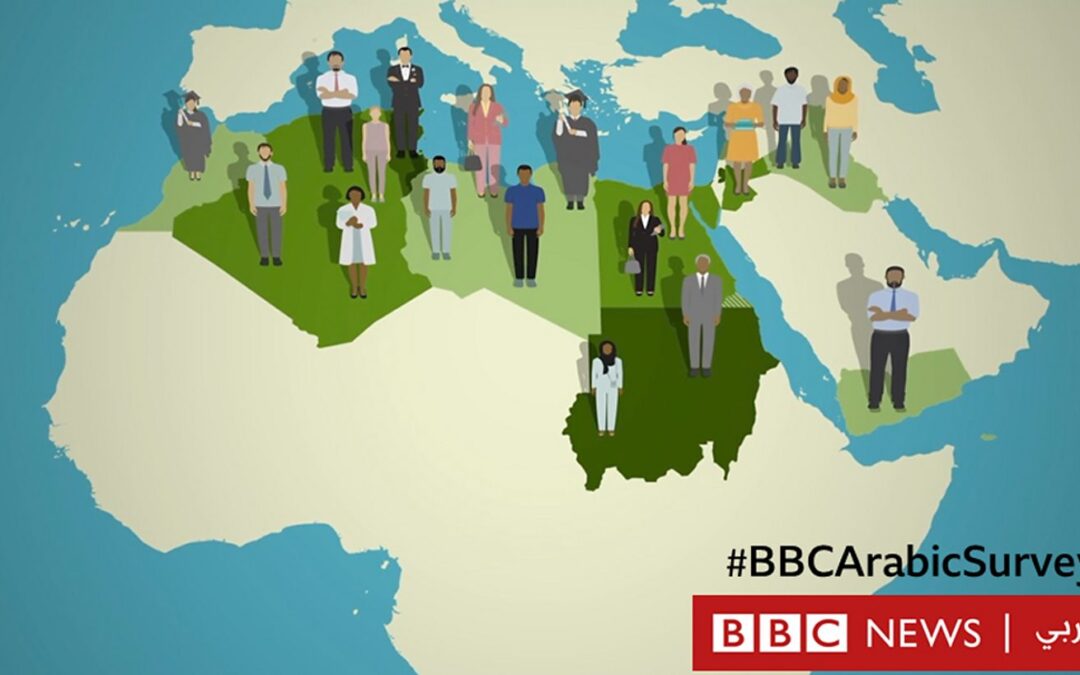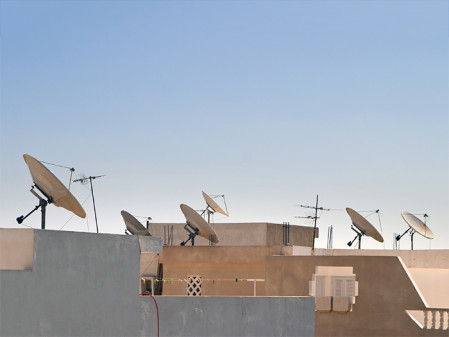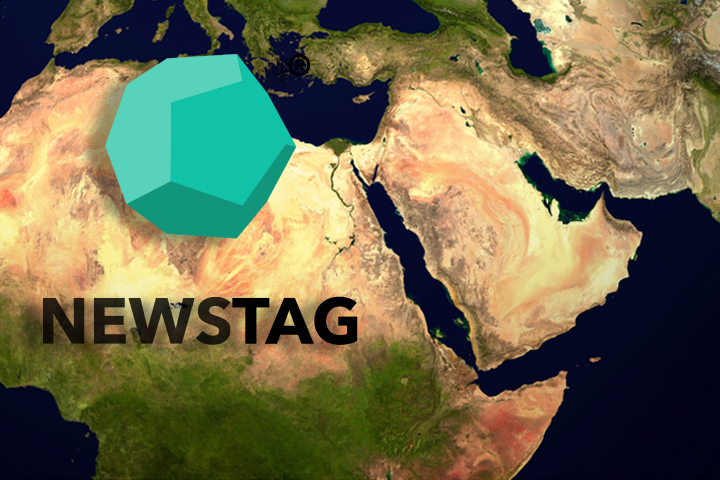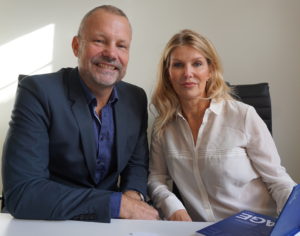
BBC News Arabic reveal findings from major MENA survey
BBC News Arabic reveal findings from major MENA survey
BBC News Arabic has revealed the latest results from one of the largest surveys carried out in the Middle East and North Africa.
Nearly 23,000 people across nine countries and the Palestinian territories were interviewed for The Arab World Survey 2021/2022 for BBC News Arabic. The findings provide a unique insight into the contemporary lives of Arabs.
Participants, who were selected at random to fairly represent their communities, were surveyed on a wide range of topics, including democracy, women’s rights, economy, and race. This is the first time a major survey has comprehensively captured people’s attitudes on racial issues in Arabic-speaking places in the region.
Between October 2021 and April 2022, face-to-face interviews were conducted with people living in Egypt, Iraq, Jordan, Lebanon, Libya, Mauritania, Morocco, Palestinian territories, Sudan, and Tunisia.
The survey was carried out for BBC News Arabic by Arab Barometer, a research network based at Princeton University. The last survey was conducted in 2018/2019.
This year’s findings indicate that:
- Attitudes towards the role of women are slowly becoming more progressive in places surveyed, apart from Morocco. But more than a third of people, in seven out of ten places, surveyed say violence against women has increased. Most people interviewed say men are better at political leadership, but compared to the 2018/2019 findings, the numbers that support this view has declined in most places. Notably, in Tunisia 40 percent of people agree, a drop of 16 percentage points since 2018/2019, and in Lebanon 36 percent agree, a decrease of 14-points. Morocco is the only place where attitudes to women are going in the opposite direction to the last survey. In 2018/2019, Morocco was the most supportive of women’s participation in the decision-making process in the public and private arenas. Thirty five percent of Moroccans said men are better at political leadership. But in the 2021/2022 findings this has risen to nearly one in two people (49 percent). Within the country, 62 percent of men and 36 percent of women agree with the statement. Over a third of people in seven of the 10 surveyed places say they think violence against women has increased in the past year. Most notably, 61 percent of people in Tunisia say this; 54 percent in Palestinian territories, 52 percent in Iraq, and 51 percent in Jordan. Nearly seven in 10 (69 percent) women in Tunisia agree with this statement, the highest number of women in the surveyed places.
- US President Joe Biden’s MENA policies are viewed as not much better than Trump’s, but the United States’ pull out from Afghanistan is widely supported in surveyed places. Mr Biden’s policies towards MENA are viewed to be the same or as worse as former US President Donald Trump’s. More than three quarters of people in Lebanon (76 percent) and the Palestinian territories (77 percent) believe this. However, the pull out of the US from Afghanistan is backed by more than half in all places surveyed. Eighty percent of those surveyed in the Palestinian territories support it and more than half of people do in Jordan (80 percent), Mauritania (72 percent), Morocco (68 percent), Libya (66 percent), Sudan (65 percent), Lebanon (65 percent), Iraq (59 percent), and Tunisia (54 percent).
- In the surveyed places, people appear to be finding their faith again, particularly young people, but trust in religious leaders continues to dwindle except in Mauritania. Apart from Iraq and Lebanon, all places surveyed saw a decline in people who described themselves as not religious. Mauritania (88 percent) and Sudan (57 percent) have the highest increase of people saying they are religious. In 2018/2019, 37 percent of Sudanese citizens said they were. [1]
- Among the under 30s, in seven out of nine places there has been a decline in those describing themselves as not religious.[1] Tunisia saw the largest decline. Today, about a third of Tunisian youth describe themselves as not religious; in 2018/2019 it was almost half the young population. But in Lebanon and Sudan there has been a significant increase in people saying they do not have any trust in religious leaders. Forty seven percent of Lebanese citizens say this, an increase of 20 points from 2018/2019. In Sudan, 31 percent say this, an increase of 15 points from 2018/2019. Trust in religious leaders is significantly higher in Mauritania (74 percent) than in the other surveyed places.
- Across surveyed places faith in democracy is in decline and there is broad support for leaders that bend the rules: Half or more people in Tunisia, Sudan, Jordan, Lebanon, Iraq, Libya, and the Palestinian territories say under a democratic system their country’s economy is weak. Iraq had the highest number of people who appear to have lost faith in democracy, with 72 percent of Iraqis agreeing with the statement. In every place surveyed in both 2018/2019 and 2021/2022, there has been an increase in the number of people who agree with the statement. [1] Jordan saw the biggest change from 24 percent of citizens saying this in 2018/2019 to 57 percent in 2021/2022. But a majority of people in all places surveyed, believe that while democracies may have problems, they are better than other political systems. In Mauritania, Tunisia, Libya, Sudan, Lebanon, Jordan, Iraq, and the Palestinian territories, more than half of people agreed with the statement that their country needs a leader who can bend the rules if necessary to get things done.
- There is a widespread acknowledgment of racial discrimination in Iraq, Jordan, Lebanon, the Palestinian territories, Sudan, and Tunisia: [2] A third or more of people in all places except Egypt agree that racial discrimination is a problem. Tunisia had the highest number of people agreeing with this, at 80 percent. But 82 percent of Egyptians say that there is no racial discrimination at all against black people.
Findings from The Arab World Survey 2021/2022 also suggest:
- Desire to emigrate has not risen in the surveyed places: Egypt saw the largest decline. In 2018/2019, just over one in four people (28%) wanted to leave Egypt, in the latest findings it is just over one in ten (13%). Jordan has the highest proportion of people who want to emigrate, at 48%. Notably, in Tunisia, Lebanon, Sudan, and Jordan, over half of under 30s want to emigrate. Top destination countries are the United States, Canada, Saudi Arabia, France, Italy, and Germany. The United Kingdom is lower down as a preferred destination, ranking in the top 5 preferred countries in only two places.
- People believe economic conditions are worsening: Over half of those surveyed in all places say the economic situation in their country is bad or very bad. Further, in most places surveyed, a majority have experienced food insecurity and scarcity and say often or sometimes they did not have money to buy more.
- People feel there is growing authoritarianism and declining civil liberties: Relatively few people say that their civil liberties are guaranteed. Compared to 2018/2019 people in Egypt, Jordan, and the Palestinian territories believe there has been a steep decline of civil liberties. The percentage of citizens reporting they have guaranteed civil liberties are highest in Lebanon, Mauritania, Morocco, and Tunisia.
- Turkish President Recep Tayyip Erdogan still towers above international leaders: In these latest findings, Mr Erdogan’s policies remain popular in places surveyed, with six places putting his policies on top.[5]
Sam Farah, Head of BBC News Arabic, says: “The Arab World Survey 2021/2022 is vital in helping us to understand what people living in the Middle East and North Africa think about the pressing issues affecting their lives.”



